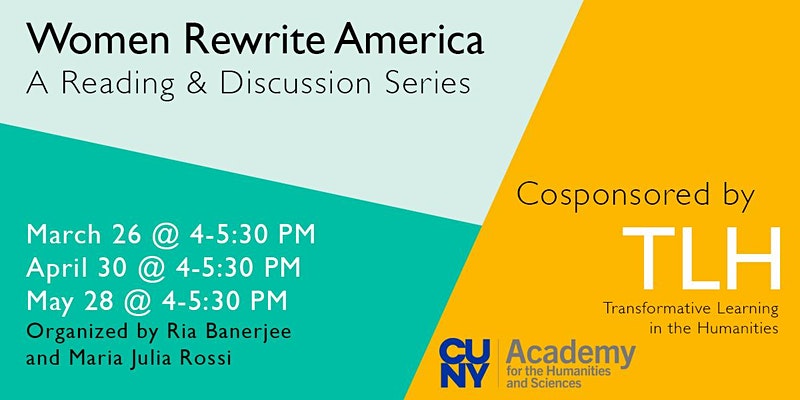ABOUT THIS EVENT
American literature has a troubled relationship to politics,” writes Viet Thanh Nguyen in a recent New York Times op-ed where he seeks to outline the future of fiction in contemporary US society. Associating apoliticality with white privilege, Nguyen challenges readers as well as writers to understand storytelling decisions as political ones. Accordingly, we ask: what does America look like when fictionalized by women of color, by immigrants, and in translation?
This reading and discussion series invites CUNY students, faculty, staff members, and the general public, to converse together and renew our attachment to intersectional, feminist, inclusive subjectivity and citizenship. We will do this using three recent novels written by women of color, whose personal history, languages, and stories challenge and broaden the rubric of US-American fiction: Yaa Gyasi’s Homegoing (2016), Valeria Luiselli’s Lost Children’s Archive (2019), and Kiley Reid’s Such a Fun Age (2019). We prefer participants who can attend all 3 sessions in order to have a sustained and deep conversation about these novels; if you are only interested in 1-2 sessions, please let us know in this form. Graduate students and part-time faculty are especially welcome.
Session 1, March 26 at 4-5:30 pm on Gyasi will be led by Dr. Sarah Hoiland (Hostos) and Isatou Batchilly;
Session 2, April 30 at 4-5:30 pm on Luiselli will be led by Dr. María Julia Rossi (John Jay) and Denise Herrera with Valeria Luiselli as our guest attendee;
Session 3, May 28 at 4-5:30 pm on Reid will be led by Dr. Alison Better (Kingsborough) and Jozette Belmont.
Each session has been assigned a faculty member and student co-leaders to guide us. Attendees are expected to read the books on their own, circulate discussion questions before the meeting as “Entry Tickets” to each session, and participate fully with the conversation that unfolds. If you need copies of the books, please let us know using this form.
At the conclusion of this R&D series, participants will be invited to contribute short reflective pieces on each text, creating a bank of ideas that will fuel our future work as academics, professionals, and citizens. Faculty members may write about how these books fit into current or future courses they teach, while participants from other professions can consider how our discussions pertain to their daily lives. Event organizers will arrange to share these written materials (reflective questions, meeting notes, and post-meeting reflections) among the group. With permission, we look forward to publishing them in an appropriate public forum.


